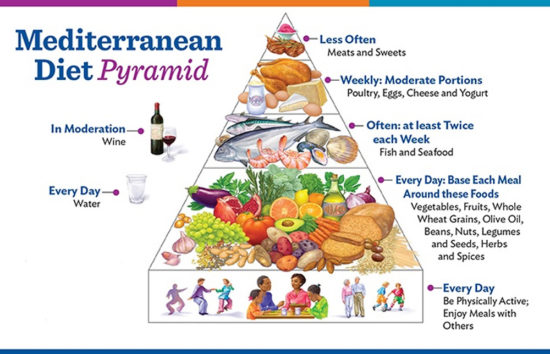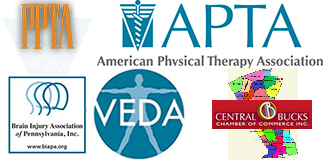Dr. Kelsey Hanlon, PT, DPT, of Wendy Webb Schoenewald Physical Therapy and Vestibular Rehabilitation, #WWSPT, discusses her Food blog in part I.
There is no shortage of claims on the internet regarding a “magic food” or secret ingredient that can cure a variety of diseases. While these claims are largely untrue, there has been significant research in the last several years that correlates various diets with improvements in brain health. An article from July 2017 in Neurology Now summarizes three of these diets and their potential benefits for specific neurologic conditions. The authors are careful to state that more research needs to be done to explore various other factors such as age, gender, lifestyle, and environment that may impact how well each diet works, but there is evidence that diet does indeed matter for brain health.
Diet #1: Mediterranean

What it May Protect Against: Alzheimer’s Disease, Parkinson’s Disease, Vascular Dementia and Stroke
Examples of food consumed on this diet: Greek yogurt, walnuts, whole wheat pasta, salmon, red bell peppers, broccoli, wild rice
The diet consists of a combination of monounsaturated fats, lean proteins, fruits, vegetables and whole grains which have been linked to a lower level of LDL cholesterol, the “bad” cholesterol that can build up arterial walls and lead to blockages. This is why the diet is thought to protect against cardiovascular disease such as stroke and vascular dementia. There is also research showing that older adults who who had the lowest adherence to the Mediterranean Diet demonstrated a far greater rate of brain atrophy, which is present in neurodegenerative illnesses such as Alzheimer’s Disease. The research on Parkinson’s Disease is newer, and while a correlation has been discovered, experts are still working to figure out exactly how and why this diet may protect against PD.
Follow us on Facebook and Stay Tuned for my next blog post about Diet – Part II
Dr. Kelsey Hanlon, PT, DPT
